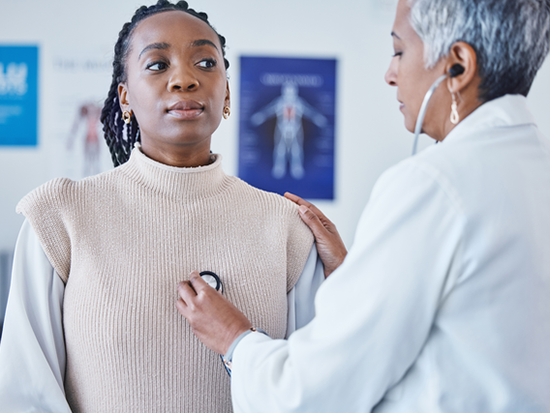
UAB News
The holiday season can be a time filled with friends, family and, of course, holiday food and beverages. While it is perfectly fine to indulge in one’s favorite food and beverages this holiday season, it is best to avoid overindulging in these items, which can potentially lead to a condition known as holiday heart syndrome — also known as atrial fibrillation, or an irregular heartbeat that is associated with binge drinking. AFib caused by holiday heart syndrome can lead to blood clots, stroke, heart failure and even heart attacks.
One expert in the University of Alabama at Birmingham Division of Cardiovascular Disease is offering some of their top tips on how to avoid holiday heart syndrome and enjoy a heart-healthy holiday season.
Causes
“The term ‘holiday heart syndrome’ was first described almost 50 years ago,” said Blake Smith, M.D., a cardiac electrophysiologist at the UAB Cardiovascular Institute. “It was noted that multiple patients were being hospitalized with cardiac arrhythmias, particularly atrial fibrillation, after binge drinking alcohol. These events were noted to be more frequent around weekends and holidays, when people are more prone to binge drinking.”
With increased alcohol consumption, there are changes in the molecular signaling in the heart and abnormalities in calcium handling within the heart. Calcium enters the heart with each heartbeat and contributes to the electrical signaling that helps with heart function. These abnormalities in calcium handling can trigger an irregular heartbeat. Alcohol consumption also leads to electrolyte disturbances and can lead to changes in the autonomic nervous system — a network of nerves that control involuntary functions of the body such as lung and heart function. Alcohol also has a direct toxic effect on heart tissue and can cause stress and injury to the cells.
In addition to alcohol consumption, overindulging in holiday feasts and a diet high in saturated fats and sodium have been linked to heart conditions and an increased risk of AFib. Large meals have been shown to increase excessive vagal nerve stimulation, which controls specific body functions such as digestion, heart rate and immune system. Eating large meals can increase blood levels of hormones that raise blood pressure and heart rate.
Symptoms And Risks
“The most common symptom is usually the sudden onset of palpitations, where someone feels like their heart is beating fast or irregularly. These palpitations can be intermittent or continuous,” Smith said. “Holiday heart syndrome may be associated with shortness of breath, dizziness or chest pain, especially if the heart rate is significantly elevated.”
If someone is experiencing these symptoms, and they are severe or last for more than a few minutes, Smith recommends seeking medical attention.
“If you seek medical attention, testing would likely be done to rule out any underlying heart disease or other causes of arrhythmia,” Smith said. “Depending on how fast the heart rate is and symptom burden, specific treatment may be needed, including medications to help slow the heart rate or a cardioversion procedure to restore normal rhythm.”
AFib caused by holiday heart syndrome usually resolves by stopping alcohol consumption. In most cases, episodes will resolve within 12-24 hours; but in some cases, AFib may persist. If this is the case, other treatment may be required.
“AFib puts patients at an increased risk of stroke, especially in the setting of other risk factors, like high blood pressure and diabetes,” Smith said. “Depending on the type of treatment needed or associated risk factors, patients may need to be started on a blood thinner medication to help reduce the risk of stroke. It is important to be evaluated if you think your heart is out of rhythm to avoid missing a diagnosis that may need long-term management.”
Prevention
“The best way to avoid holiday heart syndrome is to avoid binge drinking,” Smith said. “In general, it is recommended to not exceed more than one drink per day for women, or two drinks per day for men.”
Smith also recommends limiting fatty, sugary and salty foods and avoiding overeating. While caffeine has not been proved to increase AFib if consumed in normal amounts, Smith also says it would be better to avoid excessive caffeine intake, especially for people who may be sensitive to caffeine’s effects.
“While enjoying the holidays is important, moderation is key to keeping it heart-healthy,” Smith said. “Staying hydrated and not neglecting regular physical activity will also help.”
Smith urges people to not delay seeking medical attention if something appears to be wrong.
“When it comes to the heart, timely evaluation and treatment can make a big difference,” Smith said.




